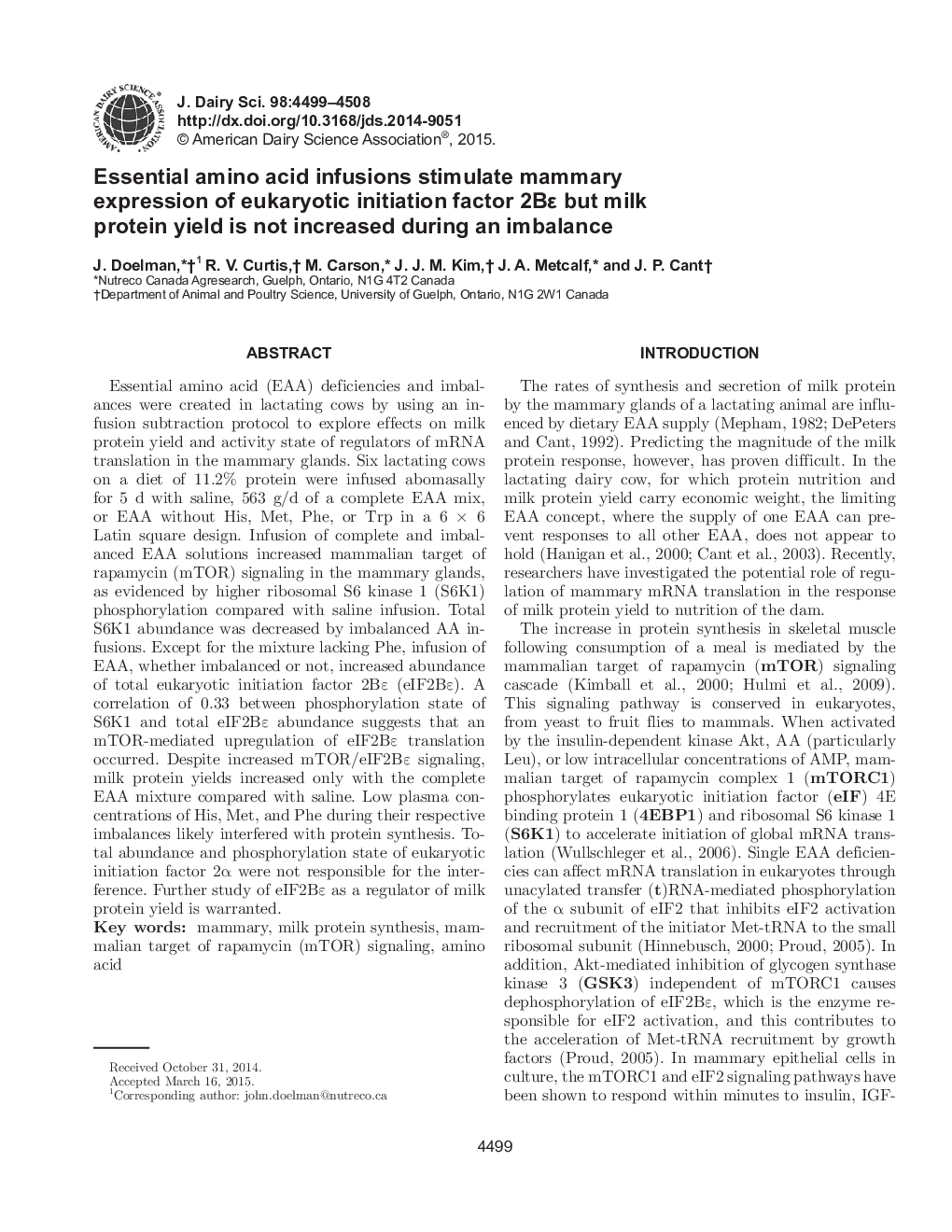| Article ID | Journal | Published Year | Pages | File Type |
|---|---|---|---|---|
| 10975259 | Journal of Dairy Science | 2015 | 11 Pages |
Abstract
Essential amino acid (EAA) deficiencies and imbalances were created in lactating cows by using an infusion subtraction protocol to explore effects on milk protein yield and activity state of regulators of mRNA translation in the mammary glands. Six lactating cows on a diet of 11.2% protein were infused abomasally for 5 d with saline, 563 g/d of a complete EAA mix, or EAA without His, Met, Phe, or Trp in a 6 Ã 6 Latin square design. Infusion of complete and imbalanced EAA solutions increased mammalian target of rapamycin (mTOR) signaling in the mammary glands, as evidenced by higher ribosomal S6 kinase 1 (S6K1) phosphorylation compared with saline infusion. Total S6K1 abundance was decreased by imbalanced AA infusions. Except for the mixture lacking Phe, infusion of EAA, whether imbalanced or not, increased abundance of total eukaryotic initiation factor 2Bε (eIF2Bε). A correlation of 0.33 between phosphorylation state of S6K1 and total eIF2Bε abundance suggests that an mTOR-mediated upregulation of eIF2Bε translation occurred. Despite increased mTOR/eIF2Bε signaling, milk protein yields increased only with the complete EAA mixture compared with saline. Low plasma concentrations of His, Met, and Phe during their respective imbalances likely interfered with protein synthesis. Total abundance and phosphorylation state of eukaryotic initiation factor 2α were not responsible for the interference. Further study of eIF2Bε as a regulator of milk protein yield is warranted.
Related Topics
Life Sciences
Agricultural and Biological Sciences
Animal Science and Zoology
Authors
J. Doelman, R.V. Curtis, M. Carson, J.J.M. Kim, J.A. Metcalf, J.P. Cant,
